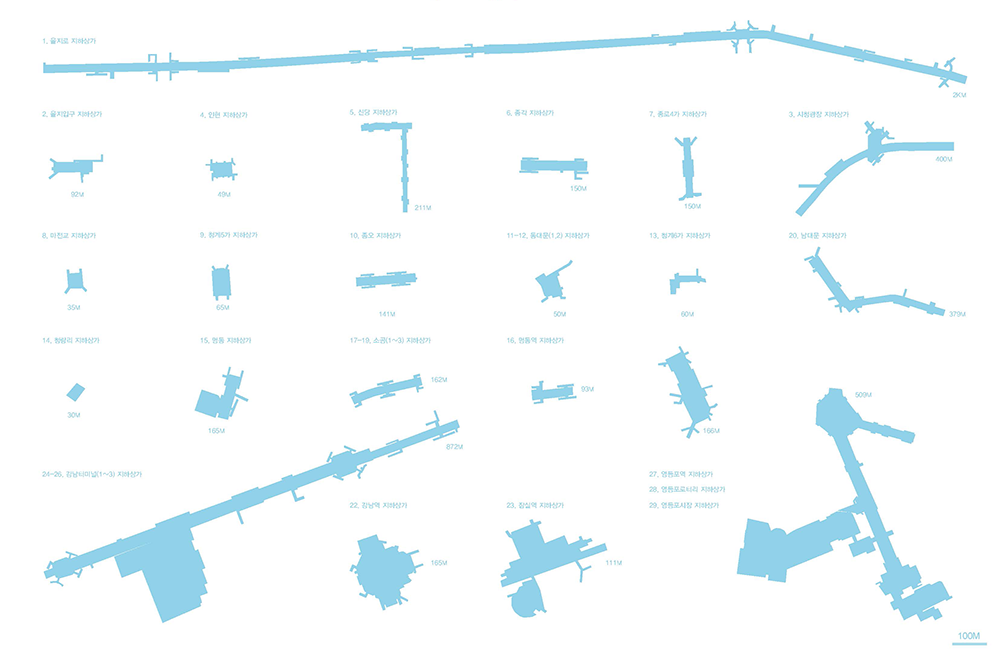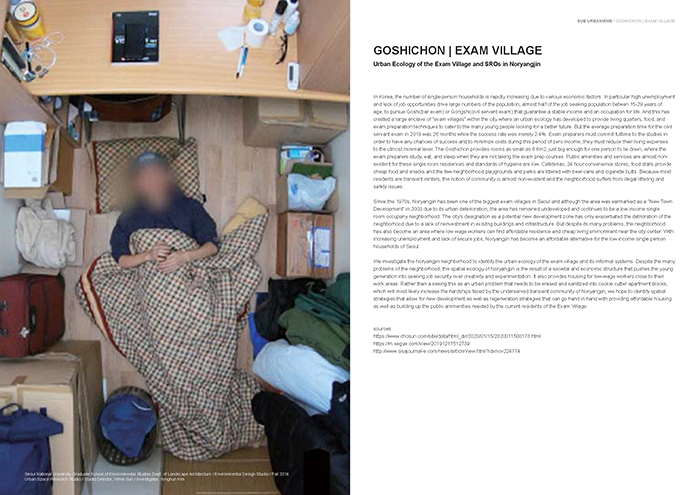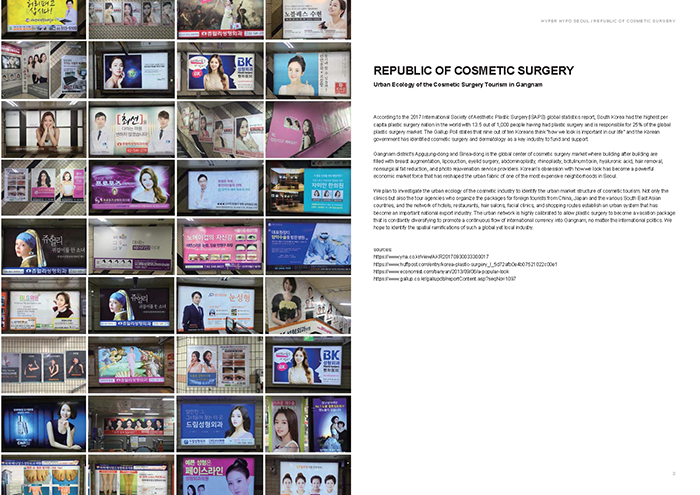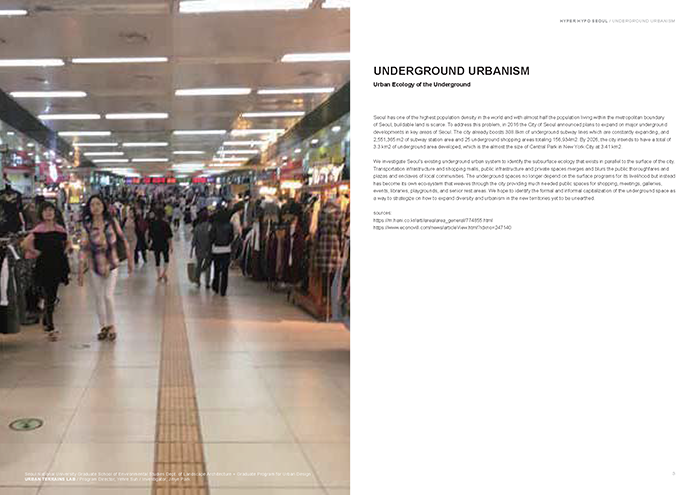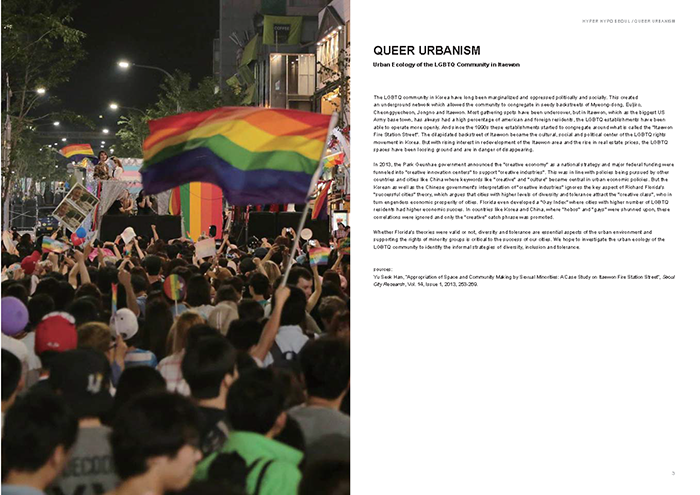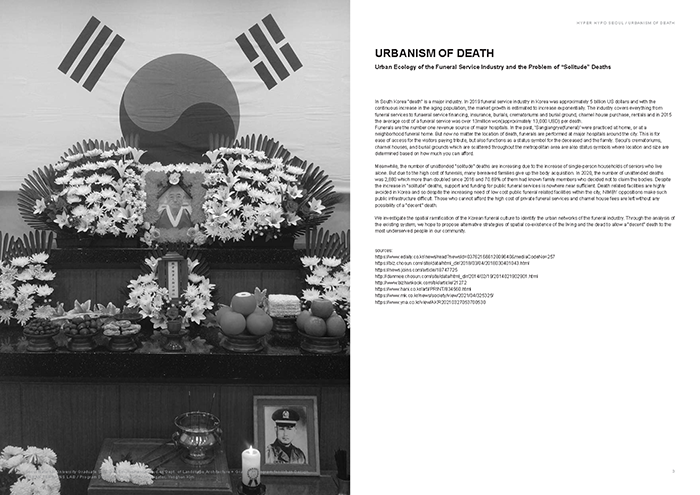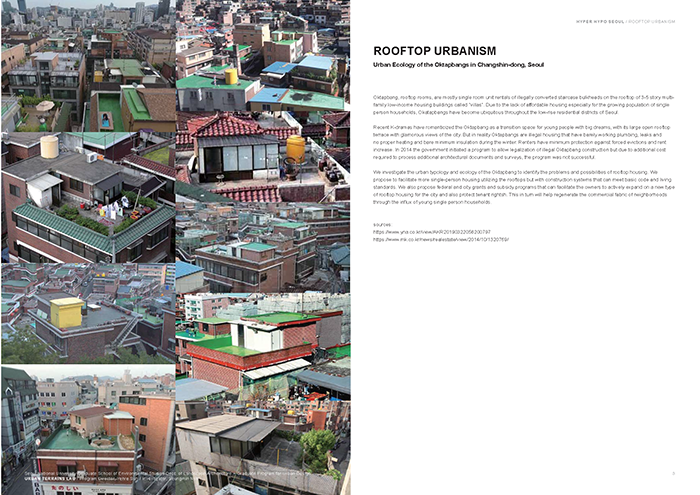Program: Urban Space Research Studio / Seoul National University, Graduate School of Environmental Studies & Graduate Program in Urban Design
Studio Director: Yehre Suh
With the neoliberal global market competition, recent city governments have become overwhelmingly infatuated and enamored with economically and socially engineered models of urban space where top-down how-to formulas made famous by urban gurus such as Richard Florida(creative class), Jan Gehl(livable cities), Jamie Lerner(urban acupuncture) and success stories of urban projects in other cities such as New York(Highline), Bilbao(Guggenheim), Rotterdam(The Market) are copied and implemented with no hesitation. This is transforming cities into homogenized and hygenicized cookie cutter molds where site specificity of places are commodified into tourist attractions and the generic molds of mega-chainstore, shopping malls and developer office towers, condominiums and hotels take over the small businesses, replacing a diverse scale, open system into a uniform, closed system.
In the mad global urgency for homogenized and hygenicized upgrading of urban spaces based on such imported models, the social, economic, cultural, political diversities, schisms, conflicts, negotiations, disruptions, mutations, diversions and its urban ramifications specific to the area have not yet been explored as an urban possibility. Urban spaces are social constructs that reveal, represent and structure the social, cultural, political prejudices and quirks of a society and Seoul is no exception.
The objective is to investigate the city as a site of new urban discoveries. As ecologists exploring a newly discovered land, we will explore the urban realm of Seoul to investigate new urban ecological systems that can potentially become alternative strategies of urbanism. Social, economic, cultural, political ecologies will be identified and analyzed to understand the unique urban spaces and habitats formed by them, and as social constructs, urban spaces will reveal the social inequalities, economic divides and political conflicts inherent to the ecological system. Based on this research, the studio will expand on the various ecologies as possible strategies of urbanisms that are generated from, and therefore sustainable, and yet adjustable and open to the formal and informal fabric of the city. Following are possible topics of interest:
- Cosmetic Surgery Tourism
- Hiking Urbanism
- Wedding Halls
- Hakwon (학원)
- Foreign Laborers
- Apartment Complex Commercial Building (아파트 단지 내 상가건물)
- Covenience Stores (편의점)
- Traditional Markets (전통시장)
- Mini/Mega Churches
- Rooftop Housing (옥탑방)
- Single Block Apartments (나홀로 아파트)
- Urban Manufacturing
- Junk Yard (고물상)
- Funerals
- Animal Companions
- LGBTQ
- Seniors
- Underground Urbanism
GOSHICHON | EXAM VILLAGE
: Urban Ecology of the Exam Village and SROs in Noryangjin
Investigator / Yonghun Kim
REPUBLIC OF COSMETIC SURGERY
: Urban Ecology of the Cosmetic Surgery Tourism in Gangnam
Investigator / Seung-Ae Han
UNDERGROUND URBANISM
: Urban Ecology of the Underground
Investigator / Jihye Park
QUEER URBANISM
: Urban Ecology of the LGBTQ
Investigator / Haein Choi
FUNERAL URBANISM
: Urban Ecology of Death
Investigator / Ara Song
OKTAPBANG | ROOFTOP ROOMS
: Urban Ecology of the Roof
Investigator / Seungmin Noh
HIKING URBANSIM
: Urban Ecology of the Mountain
Investigator / Junsoo Na
Project Team
Project Director: Yehre Suh / Urban Terrains Lab
Investigators: Yonghun Kim, Seung-Ae Han, Bumtaek Im, Ara Song, Soobin Kim, Haein Choi, Gwanghoon Oh, Jihae Lee, Seungmin Noh, Junsoo Na
